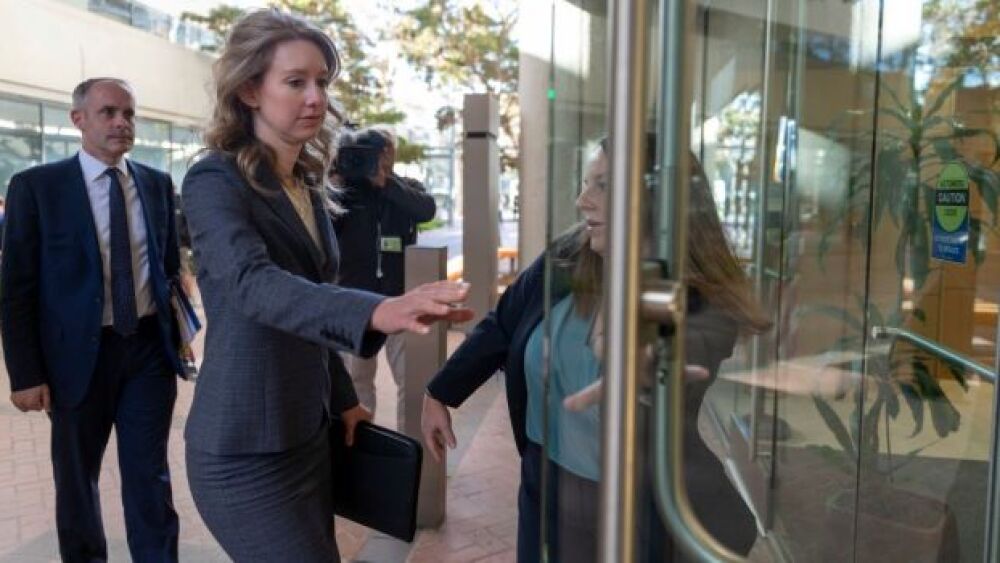Erika Cheung testified that the data manipulation happened “frequently,” in order to make the company’s lead asset look good to investors.
Yichuan Cao/NurPhoto via Getty Images
Erika Cheung, a former Theranos lab worker turned whistleblower, detailed how the company manipulated data in order to pass quality control in her testimony in the fraud trial of Holmes Tuesday and Wednesday.
Cheung testified that the data manipulation happened “frequently,” in order to make the company’s lead asset look good to investors. She testified that Theranos employees would delete up to two of six data points in a test to achieve the desired result, CNN reported.
To investors, Elizabeth Holmes promoted a blood-testing device that could accurately diagnose a myriad of conditions with a single drop of blood. These boasts helped her raise hundreds of millions of dollars for her company, but the boasts were empty, and they made some employees of the now-defunct company uncomfortable.
During Cheung’s testimony, the government presented charts that included data from 2014 showing approximately 25% of tests conducted on the Theranos technology failed quality control. That fail rate was drastically different compared to devices that had already been approved by the U.S. Food and Drug Administration, which were far more accurate. The former employee testified that those approved devices rarely failed.
Over the course of her tenure at Theranos, Cheung admitted that she became “really stressed and uncomfortable with what was going on” at the company. She was the second witness called by the government in the Holmes trial.
The lab worker said she ultimately amassed enough data to show the company’s technology was not as promising as it was being presented. And that made her concerned when it came to using the technology to determine patient results.
Cheung attempted to raise her worries about the tech failures internally but testified that her voice was not being heard. That is when she took her troubles to the outside world, specifically The Wall Street Journal and investigative reporter John Carreyrou, who went on to break the story about Theranos.
Carreyrou’s findings have since been published in the book Bad Blood and were used in multiple documentaries about Holmes. In addition to the Journal, Cheung took her concerns to the Centers for Medicare and Medicaid Services, which then began to investigate a Theranos lab in the company. That investigation ultimately led to the shutting down of operations at that lab after it failed to meet federal guidelines, and afterward, led to Theranos shuttering its lab facilities across the country.
After sharing her story with the Journal and CMMS, Cheung left Theranos.
Although her testimony appears damaging to Theranos, the Holmes defense team highlighted Cheung’s limited experience with testing due to that having been her first industry job. The legal team presented its own charts that indicated the company disclosed when data was removed from sets to demonstrate accountability.
Additionally, Holmes’ legal team noted that the data was never approved by the former CEO, but by lab administrators. Part of the Holmes defense strategy is to demonstrate that it was the lab director and not the chief executive officer of Theranos who decided the accuracy and reliability of tests.
In testimony, Cheung said she never took her concerns directly to the CEO but noted that another whistleblower, Tyler Schulz did go to Holmes with those concerns.
Holmes trial, which finally began last week after a year-long delay due to the ongoing pandemic, is expected to resume on Friday. The former CEO has been charged with multiple counts of fraud.





